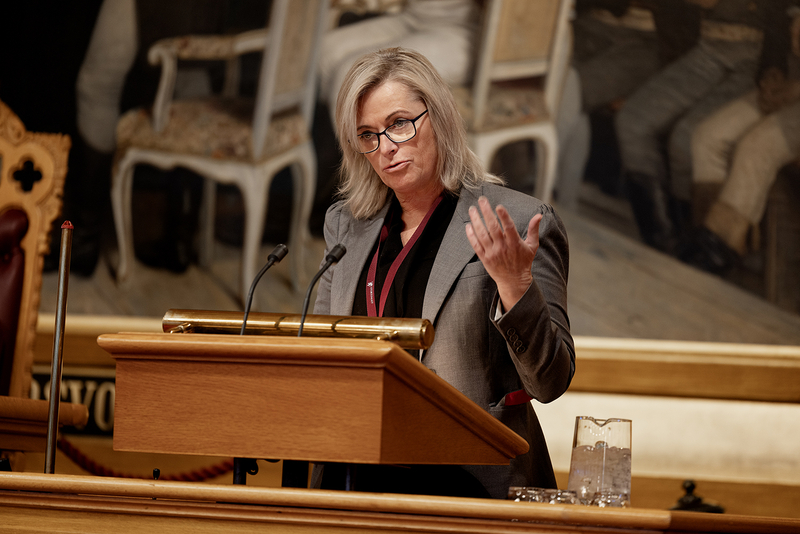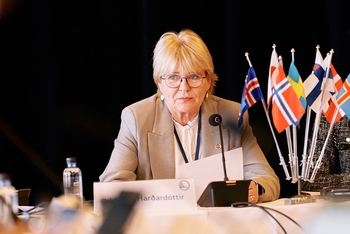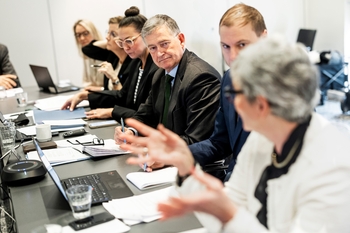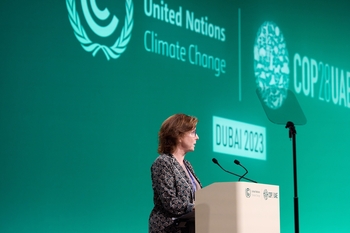Nordic centre for nuclear expertise needed

May Britt Lagesen in the Storting during the Session of the Nordic Council on 2 November 2023.
Nordic centre for nuclear expertise needed
“We have expertise in decommissioning nuclear power plants in the Nordic Region. We now have a unique opportunity to deliver a Nordic advantage by contributing to safe waste management in the Nordic Region and beyond,” says the Storting representative May-Britt Lagesen (Norwegian Labour Party) in the Nordic Council’s Committee for Knowledge and Culture in the Nordic Region.
According to the UN’s International Atomic Energy Agency (IAEA), 200 of the 450 nuclear power reactors in the world will have to be decommissioned by 2050.
The International Atomic Energy Agency recognises the Institute for Energy Technology in Norway as a pioneering organisation for creating digital simulations and 3D models which can be used in education settings to create a risk-free environment when decommissioning nuclear power plants.
Essential to step up digital skills
A Nordic centre for nuclear expertise would provide a platform for education and the exchange of skills for the decommissioning of nuclear power plants across the Nordics.
“The Nordic Region can become a pioneer in this field, but we must then strengthen our skills and develop them further. The need for specialist expertise in AI and robots is as great as the need for physicists, engineers, and experts in waste management going forwards,” says Lagesen.
“The reality is that as much as 90 percent of waste can be recycled by using and developing new technology and digital systems, and this is, of course, important. We can’t close our eyes to the fact that a circular economy will be crucial in the future,” Lagesen adds.
Significance for several sectors
The basis for the proposal is a recognition of the need to ensure education and training for the professional and sustainable decommissioning of reactors. The idea is also that enhanced digital skills in the nuclear field will be important in several other areas. For example, digital simulations and 3D models are important tools in the education of hospital staff in diagnostics and surgery.
Although the initial costs of the project are high, they will gradually decrease and it may become appropriate to involve commercial actors. There are 22 partners involved in the project, and even more have expressed interest.
The proposal is now being submitted to the Nordic Council of Ministers.




